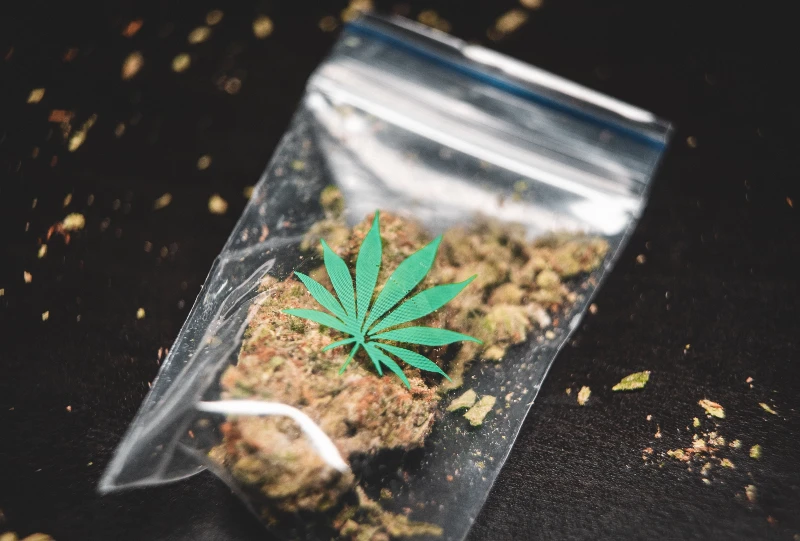
Texas drug law imposes some of the strictest penalties in the nation for drug possession, ranging from lengthy probation terms to long stints in prison.
Despite large compassionate use medical programs and recreational legalization in neighboring states, Texas still criminalizes the possession of small amounts of marijuana.
While Texas does have a medical compassionate use program (CUP) for medicinal marijuana, it is limited by the Texas Department of Public Safety to only a few medical conditions.
The list of approved medical conditions for the Texas CUP program are epilepsy, seizure disorders, multiple sclerosis, spasticity, amyotrophic lateral sclerosis, autism, terminal cancer, and incurable neurodegenerative diseases.
The Texas CUP list is much more tailored than other states and illustrates Texas’ focus on keeping any sort of legalization narrowly tailored to unique circumstances and not widespread use.
Some people believe drug possession charges in Texas are minor issues that will resolve themselves. Unfortunately, that is not the case in most cases.
A drug possession conviction can affect your employment opportunities, housing options, and other aspects of your life. Also, if you have an addiction you need help overcoming, your family may be impacted as well.
If you need help facing a drug possession charge in Texas, contact a San Antonio, Texas drug crimes attorney as soon as possible.
Our team at the Austin Hagee Law Firm knows that not everyone charged with drug possession is guilty of a crime. We will listen to the details of your case and put our extensive knowledge of Texas drug laws to work for you.
We will not stop until we have examined every aspect of your case and create an action plan to get you the absolute best outcome. More than that, we will work with your family to get you whatever support and guidance you may need.
Contact our office today to schedule a free initial consultation.
What Are Texas Laws on Drug Possession?
Possession is the lowest level of drug crime in Texas. If someone has large quantities in their possession, law enforcement may seek other charges, like possession with intent to distribute or manufacturing with intent to deliver.
Possessing less than two ounces of marijuana in Texas is considered a Class B misdemeanor. A Class B misdemeanor carries a penalty of up to 180 days in jail and a fine of up to $2,000.
Possession of between two and four ounces of marijuana is considered a Class A misdemeanor. A Class A misdemeanor carries a penalty of up to one year in jail and a fine of up to $4,000.
Texas separates other drugs into groups. The penalties for drug possession vary based on what group the possessed substance falls into. For example, group 1 substances include:
- Cocaine,
- Methamphetamine,
- Heroine, and
- Ketamine.
LSD is considered a group 1A substance and includes the same penalties as those imposed for group 1 substances.
Group 2 substances include:
- Ecstasy,
- Concentrated marijuana oil, and
- PCP.
Thus, possession of less than a gram of a group 1 or 2 substance is considered a state jail felony. Possessing any of these substances will create a felony charge in Texas.
The charges can be increased to a higher degree felony depending on the volume of the substance possessed and whether the officer’s label the volume as indicative of having intent to distribute to others.
Possession of less than 28 grams of a group 3 or 4 substance is considered a Class A misdemeanor. Examples of group 3 and 4 substances include:
- Valium,
- Ritalin,
- Xanax, and
- Compounds containing Dionine, Motofen, Buprenorphine, or Pyrovalerone.
Texas drug laws vary based on the quantity and type of drugs you are accused of possessing. Contact our office today to see what penalties you are facing in your situation.
Contact a Drug Possession Attorney at Austin Hagee Law Firm Today
A drug possession conviction can inflict several negative consequences on your everyday life. A criminal defense attorney can review the facts of your case and determine if a legal defense applies to your case.
In some cases, a legal defense may convince the prosecutor to reduce or dismiss your charges. Also, certain facts surrounding the way the encounter with law enforcement was initiated and how it developed can have huge implications on the outcome of your case.
As former prosecutors, our drug possession defense attorneys at the Austin Hagee Law Firm know what evidence the state needs to prove your case. We have helped thousands of clients navigate their drug possession charges in Texas.
Contact our office today to schedule an appointment with a member of our team, so we can work to help you and your family get the best result for your situation. Don’t leave up to chance, get a legal team that will fight for you.
